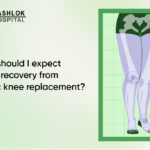Exploring the Top Treatments Offered at Piles Hospitals Near You
Introduction:
Piles which are also termed as hemorrhoids, can be a source of discomfort and pain for many individuals. Fortunately, numerous treatment options are available at specialized piles hospitals to alleviate symptoms and improve quality of life. We will help you to explore some top treatments offered for piles at the hospitals near you. With an emphasis on giving upon great healthcare data, we dig into the cost of treatment and the expectation during your journey toward recovery. Delhi brags some of the main healthcare offices with regards to overseeing and treating piles. The Aashlok Hospital in Delhi offers all the treatment choices going from non-surgical techniques to cutting edge surgical interventions. It is equipped with advanced technologies that guarantee minimum inconvenience and speedier recovery times for patients. A customized care plan is provided to meet the extraordinary requirements of every patient. Let’s delve into the various treatment options available so that you can choose the one which seems best according to your requirements.
Non-Surgical Treatments:
- Medications: Topical creams, ointments, or suppositories containing corticosteroids or numbing agents are generally prescribed by the doctors to relieve itching, pain, and inflammation associated with hemorrhoids.
- Fiber Supplements: it’s suggested to enhance the intake of dietary fiber or fiber supplements that can help soften stools, making them easier to pass and reducing strain during bowel movements, which can exacerbate piles.
- Sitz Baths: Piles symptoms can be temporarily relieved by using warm water baths, known as sitz baths as it reduces inflammation and improves blood flow to the affected area.
Minimally Invasive Procedures:
- Rubber Band Ligation: This is a common outpatient procedure involving placement of a small rubber band at the base of the hemorrhoid to cut off its blood supply, causing it to shrink and fall off within a few days.
- Sclerotherapy: A sclerosing agent is injected into the hemorrhoid in this procedure, causing it to shrink. It is particularly effective for smaller hemorrhoids.
- Infrared Coagulation (IRC): IRC uses infrared light to coagulate the blood vessels supplying the hemorrhoid, leading to its shrinkage and alleviation of symptoms.
Surgical Interventions:
- Hemorrhoidectomy: A hemorrhoidectomy may be recommended in severe cases or when other treatments have failed. This surgical procedure involves the removal of hemorrhoidal tissue under general or local anesthesia.
- Transanal Hemorrhoidal dearterialization (THD): THD is a minimally invasive surgical technique that targets the blood vessels supplying the hemorrhoid, reducing blood flow and causing it to shrink.
Conclusion:
A wide range of treatment options tailored to the severity of the condition and individual patient needs are offered at Aashlok hospital which is one of the best Piles hospitals in Delhi. There are effective solutions available from non-surgical interventions to minimally invasive procedures and surgical interventions that help to alleviate symptoms and improve the quality of life for those suffering from hemorrhoids. Finding the most effective treatment depends upon a few elements, including the seriousness of the condition, facilities available at the hospital and your budget. Generally, non-surgical treatments and short term strategies are more cost-effective than surgical interventions. Nonetheless, Aashlok hospital offers serious valuing and protection backing to make treatment open to a more extensive crowd.
Additionally, a crucial role is played by lifestyle modifications and preventive measures in managing piles and reducing the risk of recurrence. If you’re experiencing symptoms of piles, consulting with a specialist at a piles hospital can help determine the most appropriate treatment plan for you.
FAQS
Which treatment is best for piles?
The type of piles you are suffering from and the severity of your condition decides the choice of treatment for piles. Itching and pain can be relieved with the use of over-the-counter creams, ointments, or suppositories containing hydrocortisone. Medical interventions can be essential in more intense instances. Procedures like rubber band ligation, sclerotherapy, or infrared coagulation can be effective in treating internal hemorrhoids. Surgical options such as hemorrhoidectomy may be considered for large or persistent hemorrhoids. It’s crucial to consult a healthcare professional for proper diagnosis and personalized treatment recommendations based on individual needs and medical history. Ignoring symptoms or attempting self-treatment without medical guidance can lead to complications.
Which fruit is good for piles?
Certain fruits containing high fiber content and potential anti-inflammatory properties can provide relief to individuals suffering from piles (hemorrhoids). Papaya is one such fruit. An enzyme called papain present in papaya aids in digestion and can alleviate symptoms associated with piles. Additionally, its high fiber content promotes regular bowel movements, reducing the risk of constipation, which can exacerbate hemorrhoids. Another beneficial fruit is bananas. Bananas are rich in fiber and can help soften stools, making them easier to pass and reducing strain during bowel movements. Moreover, the potassium content in bananas may help regulate fluid balance in the body, potentially reducing swelling and discomfort associated with piles.
Yes, you can get piles removed through various medical procedures depending on the severity of your condition. Common surgical procedures for removing piles include rubber band ligation, sclerotherapy, infrared coagulation, and hemorrhoidectomy. Consulting with a healthcare professional will help determine the most suitable treatment option based on your condition and medical history.
What is the cost of pile surgery?
The cost of pile surgery can vary widely depending on various factors such as the severity of the condition, the type of surgery performed, the location of the medical facility, and whether it’s performed as an outpatient procedure or requires hospitalization. The cost is typically more without insurance coverage. However, with insurance, patients may only be responsible for copays, deductibles, and any additional costs not covered in their plan. It’s crucial for individuals considering pile surgery to consult with their healthcare provider and insurance company to understand the specific costs involved and to explore potential financial assistance options if needed.










